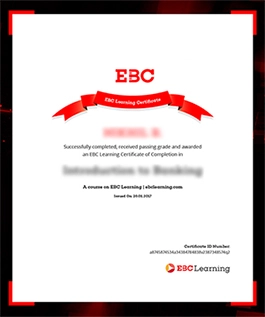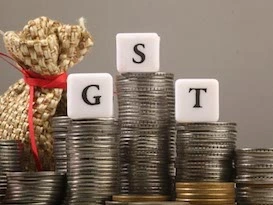Goods and Services Tax (GST) Essentials
Enrollment is Closed
This course is an introductory course to new Indirect Taxation Law in India – the GST – the Goods and Services Tax. As business entrepreneurs or students, its is imperative to understand the basics of a changes being brought out by GST as it now rules our day-to-day lives.
Introduction to key concepts of GST, how to register under GST, what comes under GST are some of the learning modules in this course. This course is intended to keep you abreast with the changes in the tax sector under GST as well as help you run your business smoothly.

Every time I meet Prime Minister Modi and listen to him and then see his actions, including GST, I see bold things that I don't see in any other place. I am super impressed and optimistic.
Tim Cook- 1. Introduction
- 1.1 Welcome
- 2. Basics of taxation
- 2.1 What is tax?
- 2.2 Source of power to tax
- 2.3 Stages of Taxation
- 2.4 Types of Taxes - Direct, Indirect
- 2.5 Structure of Indirect taxation
- 2.6 Disadvantage of earlier Indirect taxation system
- 3. Introduction to GST
- 3.1 What is GST?
- 3.2 Historical developments leading to GST
- 3.3 Constitutional amendment and need for it
- 3.4 What are the objectives of GST regime?
- 3.5 What all taxes are subsumed by GST?
- 3.6 What all taxes are not subsumed by GST?
- 3.7 Which items GST does not cover at present and its effect?
- 3.8 Is GST same as VAT? Or How does present VAT and GST differ?
- 3.9 What is meant by ‘cascading effect’ in taxation?
- 3.10 How will GST address cascading effect or ‘tax on tax’?
- 3.11 What is CGST/ SGST/ IGST/ UTGST?
- 3.12 At What point GST will be levied?
- 3.13 What are likely benefits of GST?
- 3.14 What are likely disadvantages of GST?
- 3.15 Global perspective on GST
- 4. GST COUNCIL
- 4.1 Introduction to GST Council
- 4.2 Role of GST Council
- 4.3 How will decisions be taken by the GST Council?
- 4.4 Migration to GST
- 5. Registration
- 5.1 Registration under GST - An introduction
- 5.2 Who is liable to register under GST laws?
- 5.3 Who is exempted from registration?
- 5.4 What is an aggregate turnover?
- 5.5 New registration
- 5.6 About GSTN
- 5.7 Cancellation of registration
- 5.8 What are implications of cancellation of registration?
- 5.9 Amendment of registration
- 6. Referred Videos
- 6.1 Concept of supply under GST
- 6.2 Composition levy
- 6.3 Compensation cess
- 6.4 Actionable claims
- 6.5 Composite / Mixed supply
- 6.6 Concept of reverse charge
- 6.7 Rate slabs
- 6.8 Exempt services
- 6.9 Accounts and records in GST
- 6.10 GST practitioners
- 6.11 TDS under GST
- 6.12 Tax collection at source
- 6.13 Job work
- 6.14 Transition provisions under GST
- 6.15 Imports under GST
- 6.16 Returns
- 6.17 GST Implementation issues
WHY TAKE THIS COURSE?
The Indirect Tax Regime has recently been overhauled with 17 Indirect Taxes being subsumed into a single tax called Goods and Services Tax or simply GST. GST is the result of deliberations and discussions spanning more than a decade and a half and seeks to overhaul the Indirect Taxation System in the Country. GST provides much-needed clarity to the rate of tax levied and simplifies the various procedures which is helpful to everyone from the businesses to the consumers.
This Introductory Course will help you – whether you are a businessman, student, professional or just someone who is interested to understand GSTs key concepts.
In this course you’ll learn to:
- Examine the basics of taxation and taxation structure
- Understand the development and different sub-structures under GST
- List and identify what instruments are taxable under GST
- Examine the process of implementation of GST
- Understand the role and decision making authority of the GST council
- List and state the procedure for registration under GST
- Understand the different concepts that come under the working or purview of GST
PREREQUISITES
There are no prerequisites for this course. You can take this course, if:
- You are a recent law graduate or graduating from law school
- You have a basic understanding of legal practice and procedure
- You are a legal practitioner dealing with taxation law
- You are a chartered accountant or a company secretary
- You are dealing with the accounts and finance of your company
- You aim to have a better understanding of GST
Instructors

Charu Mathur
Advocate Charu Mathur has a rich and diverse expertise on corporate, commercial, civil, criminal and constitutional matters. She is Advocate on Record Supreme Court of India. Advocate Mathur is a regular practitioner before the Hon'ble Supreme Court and represented parties which include cricketing bodies and educational institutions like IIT Jodhpur, NLU Jodhpur, BPUT Orissa, MPUAT Rajasthan, private engineering and medicine colleges of Gujarat and Orissa.

GST is a tribute to the maturity and wisdom of India’s democracy.
Pranab MukherjeeCertificate
Complete this course and exercises to earn a certificate. Share it with your friends, colleagues, and employers.*
*You must Subscribe to get a certificate.

Limit Reached or Trial Expired
You have reached the limit of 2 audit enrollments or your trial period has expired.


